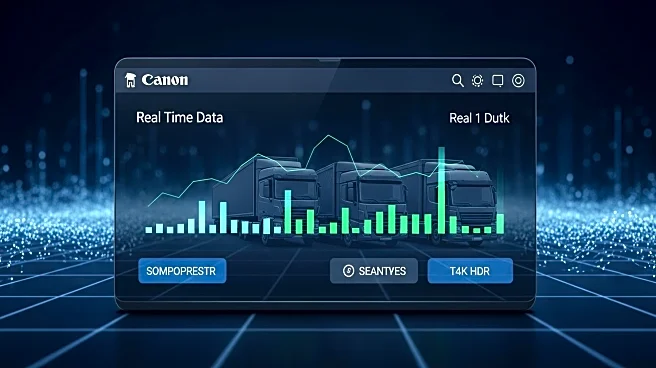What's Happening?
The trucking industry is experiencing rapid changes, necessitating the use of current data for decision-making. The article highlights the importance of relying on up-to-date information rather than outdated data, which can lead to incorrect assumptions. The author shares a personal anecdote about misjudging the percentage of Class 8 tractors traveling 300 miles a day due to reliance on old data. This story underscores the dynamic nature of the trucking industry, where shifts in market conditions and technological advancements require constant reevaluation of data. The article emphasizes the need for fleet managers to seek reliable sources of information to make informed decisions, especially with the variety of powertrain options available today.
Why It's Important?
The significance of using current data in the trucking industry lies in its impact on operational efficiency and strategic planning. As the industry evolves with new technologies and changing freight environments, relying on outdated data can lead to suboptimal decisions, affecting fleet performance and profitability. Accurate data helps fleet managers understand market trends, consumer behavior, and technological advancements, enabling them to optimize routes, reduce costs, and improve service delivery. The emphasis on current data is crucial for maintaining competitiveness in a rapidly changing industry, where decisions based on outdated information can result in missed opportunities and increased operational risks.
What's Next?
Fleet managers are encouraged to continuously update their data sources and methodologies to reflect the latest industry trends and technological developments. This proactive approach will help them adapt to changes in the freight environment and leverage new powertrain technologies effectively. As the industry continues to evolve, staying informed with current data will be essential for making strategic decisions that enhance fleet efficiency and sustainability. Stakeholders may also consider investing in data analytics tools and partnerships with technology providers to ensure access to accurate and timely information.
Beyond the Headlines
The reliance on current data in the trucking industry also raises ethical considerations regarding data privacy and security. As fleet managers seek more detailed and real-time data, they must navigate the challenges of protecting sensitive information and ensuring compliance with data protection regulations. Additionally, the shift towards data-driven decision-making may influence the industry's cultural dynamics, encouraging a more analytical and evidence-based approach to operations.










